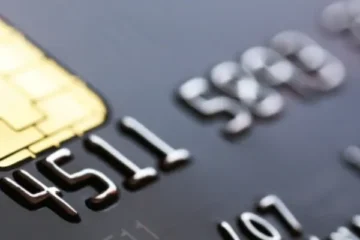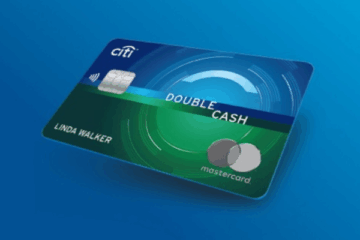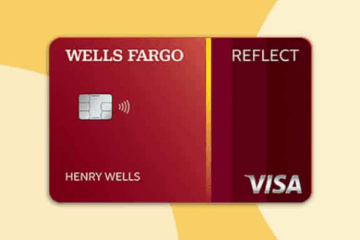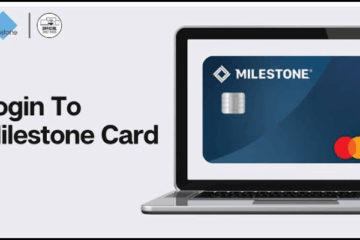Credit Card Debt Renegotiation
Feeling buried under credit card debt and the weight of soaring interest rates? You’re not alone in this struggle. This guide is your lifeline, offering practical strategies to effectively renegotiate your debts.
Advertising
From initiating contact with creditors to navigating repayment alternatives, empower yourself to shake off financial strain and achieve debt freedom.
Advertising
Join us on this journey toward financial empowerment and reclaim control over your financial future.
Renegotiation to Reduce Interest on Card Debts
Are you stuck in an endless cycle of high interest rates on your credit card debts? The good news is you’re not alone. Many people struggle with credit card debts and the associated interest rates.
Advertising
Fortunately, there are ways to renegotiate your debts and reduce financial burdens. In this guide, we’ll explore effective strategies to help you successfully negotiate your debts and break free from the interest cycle.
Contact the Creditor
The first step to renegotiating your credit card debts is to contact the creditor. Explain your current financial situation and request renegotiation options, such as interest rate reduction, installment payment plan, or even a settlement offer.
Present a Payment Plan
Prepare a realistic payment plan that you can adhere to. Show the creditor that you’re committed to paying off your debts and willing to make the necessary payments. Be transparent about your financial capacity and demonstrate your determination to resolve the situation.
Consider Balance Transfer Option
One option to reduce interest on your credit card debts is to transfer the balance to a card with a lower interest rate. Many credit card issuers offer balance transfer promotions with low or even zero interest rates for a specific period of time.
Tips to Avoid High Fees on Credit Debts

Avoiding high fees on credit card debts is crucial to keeping your finances in check and avoiding the vicious cycle of debt.
In this section, we’ll share some practical tips to help you manage your debts effectively and avoid accruing high interest.
Pay the Full Amount
Whenever possible, try to pay the full amount of your credit card bill within the due date. This will help avoid interest charges on the remaining balance and ensure you don’t accumulate more debt.
Make Timely Payments
Not only paying the minimum amount due, but also paying your credit card bills on time is crucial to avoiding high fees. Payment delays can result in additional fines and interest, further increasing your debt.
Establish a Budget
Stay within your budget and avoid overspending that can lead to credit card debts. Keep track of your expenses regularly and prioritize payment of essential bills before spending on discretionary items.
Negotiate with the Creditor
If you find yourself in financial difficulties and unable to pay off your credit card debts in full, don’t hesitate to contact the creditor to negotiate alternative payment options. Often, creditors are willing to work with you to find a solution that is mutually beneficial.
How to Get Rid of Abusive Interest on Debts
Abusive interest on credit card debts can make it even harder to break free from the debt cycle.
In this section, we’ll explore ways to get rid of these unfair interests and regain control of your finances.
Know Your Rights
It’s important to be aware of your rights as a consumer when it comes to abusive interest on credit card debts. Familiarize yourself with consumer protection laws and know what creditors can and cannot do in terms of interest charges.
Seek Professional Assistance
If you’re struggling to deal with credit card debts and abusive interest, consider seeking professional assistance from a financial counseling agency or a lawyer specializing in consumer debt issues. They can provide expert guidance and help you negotiate with creditors to reduce financial burdens.
Explore Debt Consolidation Options
Consider consolidating your credit card debts into a consolidation loan with a lower interest rate. This can help reduce your monthly payments and simplify the payment process, allowing you to get rid of abusive interests more quickly.
Be Persistent in Negotiation
Don’t give up in trying to negotiate with creditors to reduce abusive interests on your debts. Be persistent and patient, and be prepared to present strong arguments in support of your request for charge reduction. With determination and negotiation skills, you can achieve positive results.
Negotiation to Reduce Charges on Debts
Negotiating for lower charges on credit card debts is a strategic move to alleviate financial burdens and regain control of your finances. In this section, we’ll explore effective tactics to employ when negotiating with your creditors.
- Conduct Thorough Research: Before engaging in negotiations with creditors, conduct thorough research to understand market offerings. Familiarize yourself with prevailing interest rates and promotional deals from other credit cards to leverage during negotiations.
- Present a Compelling Case: When negotiating with creditors, present a compelling case for why you merit a reduction in charges. Be transparent about your financial situation and showcase your commitment to debt repayment.
- Remain Flexible: Stay open to compromises and flexibility during negotiations. Consider various payment options and aim for an agreement that benefits both you and the creditor.
- Formalize Agreements in Writing: Upon reaching an agreement with the creditor, ensure to formalize it in writing. This step mitigates future misunderstandings and guarantees commitment fulfillment from both parties.
Guide to Renegotiate Debts and Avoid Interest
Renegotiating credit card debts can be an effective way to reduce interest and regain control of your finances. In this section, we’ll provide a step-by-step guide to help you renegotiate your debts and avoid excessive interest.
Assess Your Financial Situation
Before starting to renegotiate your credit card debts, assess your current financial situation. Calculate the total amount of debt, including interest and charges, and determine how much you can afford to pay monthly towards debt repayment.
Contact the Creditors
Reach out to your creditors to discuss renegotiation options. Explain your current financial situation and request options such as interest rate reduction, installment payment plans, or even a settlement offer.
Negotiate Favorable Terms
Negotiate with creditors to obtain more favorable payment terms. This may include a reduction in interest rates, the elimination of additional fees, or an extension of the payment term to make installments more affordable.
Formalize the Agreement
After reaching an agreement with the creditors, make sure to formalize the agreement in writing. This will ensure that both parties clearly understand the terms of the agreement and help avoid misunderstandings in the future.
Fulfill Your Commitment
Follow through on the agreement you made with the creditors and make consistent and timely monthly payments. This will help rebuild your financial credibility and put you on the path to financial freedom.
Strategies to Avoid Interest on Debts
Avoiding interest on credit card debts is essential to keeping your finances healthy and avoiding the vicious cycle of debt. In this section, we’ll explore some effective strategies to help you avoid excessive interest on your debts.
Pay the Full Amount of the Invoice
Whenever possible, try to pay the full amount of your credit card bill within the due date. This will prevent interest from being charged on the remaining balance and help avoid debt accumulation.
Make Timely Payments
In addition to paying the full amount of the bill, make sure to make your credit card payments on time. Payment delays can result in fines and additional interest, further increasing your debt.
Avoid Cash Withdrawals
Avoid cash withdrawals with your credit card, as they are often subject to higher interest rates than regular purchases. If you need cash, opt for other payment methods such as a debit card or ATM withdrawal.
Monitor Your Balance
Keep an eye on your credit card balance and do not exceed your credit limit. Staying within your limit will help avoid over-limit fees and keep your finances in check.
Credit Card Debt Renegotiation
Renegotiating credit card debt can be an effective way to reduce financial burden and regain control of your finances. In this section, we’ll explore some strategies to help you successfully renegotiate your debts.
Evaluate Your Options
Before starting to renegotiate your credit card debts, assess your options and determine the best approach for your specific financial situation. Consider factors such as the total debt amount, your repayment ability, and what renegotiation options are available to you.
Contact the Creditors
Reach out to your creditors to discuss renegotiation options. Explain your current financial situation and request options such as interest rate reduction, installment payment plans, or even a settlement offer.
Negotiate Favorable Terms
Negotiate with creditors to obtain more favorable payment terms. This may include a reduction in interest rates, the elimination of additional fees, or an extension of the payment term to make installments more affordable.
Formalize the Agreement
After reaching an agreement with the creditors, make sure to formalize the agreement in writing. This will ensure that both parties clearly understand the terms of the agreement and help avoid misunderstandings in the future.
Smart Negotiation to Save Money
Employing strategic negotiation tactics for your credit card debts can lead to significant cost savings and a regained financial footing. In this section, we’ll delve into effective negotiation strategies to implement with your creditors.
- Understand Your Alternatives: Before commencing negotiations with creditors, acquaint yourself with available options and market dynamics. Stay informed about prevailing interest rates and promotional offers from alternative credit cards to leverage during negotiations.
- Articulate a Convincing Argument: When negotiating with creditors, articulate a persuasive argument for why you warrant a reduction in charges. Maintain transparency regarding your financial circumstances and demonstrate your commitment to debt settlement.
- Embrace Flexibility: Embrace a flexible approach during negotiations, remaining receptive to compromises and alternative payment arrangements that serve both your interests and those of the creditor.
- Document Agreements: Following agreement with the creditor, ensure to document terms in writing. This formalization minimizes future discrepancies and solidifies commitment adherence from both parties.
By following these negotiation strategies and tactics, you’ll be on the right path to reducing your financial burdens and regaining control of your finances.
Remember to be patient, persistent, and proactive when negotiating with your creditors, and never hesitate to seek professional assistance if needed.
With determination and negotiation skills, you can overcome your credit card debts and build a more solid financial future.





